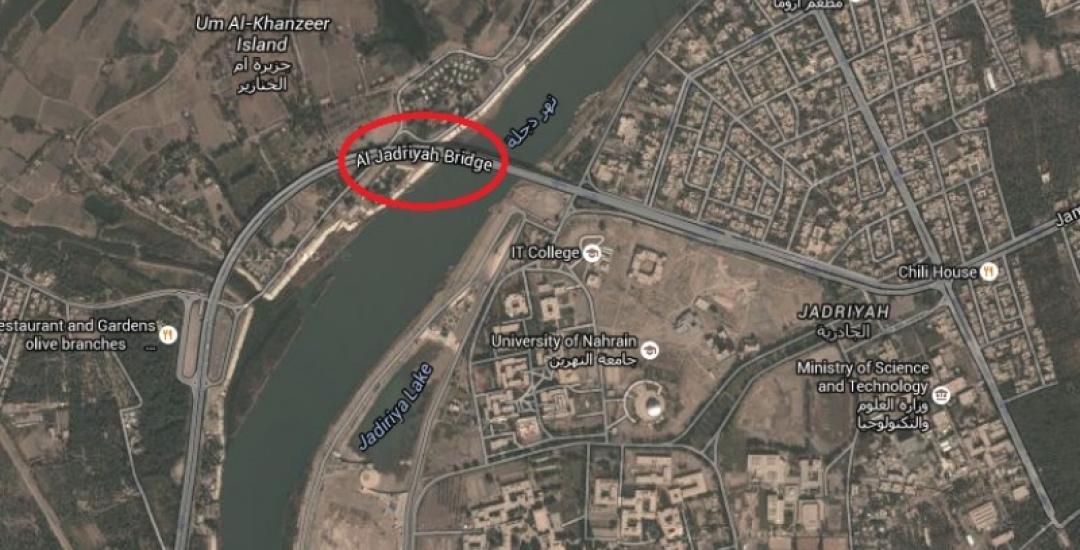
On 14 August 2015, Alkarama, in cooperation with Al Wissam Humanitarian Assembly, brought to the attention of the United Nations Working Group on Enforced or Involuntary Disappearances (WGEID) the cases of Mohammad Al Dulaimi and Essam Al Obaidi, two Iraqi policemen who disappeared following their respective arrests by the Iraqi Army and the American Army, in 2005 and 2007.
Disappearance of Mohammad Al Dulaimi
35-year-old married Iraqi policeman, Mohammad Al Dulaimi was arrested in front of his wife and mother at 6.40am on 16 November 2005 by 13 members of the Fifth Division of the Iraqi Army – a branch of the security services under the control of the Ministry of Interior – who broke into his house in Baghdad without presenting a warrant. The officers then forced Al Dulaimi into a Chevrolet Blazer car without licence plates and drove him to an unknown location in. After one hour, his family was called and asked for a $25,000 ransom to release their relative.
On 27 January 2006, Al Dulaimi's family found his name in the records of the intelligence services of the Hussein Brigade, a militia that was merged with the Federal Police a few years previously. They were also informed that he had, at first, been referred to the headquarters of the Fifth Division on 7 January 2006. Six months later, on 20 July 2006, the family saw him on TV in a programme called "Behind Bars" broadcasted on Al Sumaria channel. They tried to obtain a copy of the programme at the TV station, but were not allowed.
After Al Dulaimi's disappearance, his family filed complaints with the Shaab Police Station, the Al Rusafa Court, the Ministry of Human Rights, the Office of the Prime Minister, the Head of the Parliamentary Council, the Ministry of Interior, the Fifth Division of the Iraqi Army, as well as with some Iraqi and American prisons; however, none of these authorities could provide information on Al Dulaimi's whereabouts.
Disappearance of Essam Al Obaidi
On 22 August 2007, 40-year-old married policeman, Essam Al Obaidi left his house in the morning to go to work at the Ministry of interior. On his way there, he passed by the Jadiriyah Bridge, in South-western Baghdad, then under the control of American soldiers. That day, following an explosion close to the bridge, the American Army conducted mass arrests in the area. It is believed that Al Obaidi was among those arrested and taken to an American detention facility.
"Although the Iraqi authorities are not responsible for the abduction of Al Obaidi, the crime of enforced disappearance is continuous, as long as the fate of the person is not established. This means that today it is Iraq's responsibility to shed light on Al Obaidi's whereabouts, open an investigation and prosecute those responsible regardless of who the perpetrators were," says Inès Osman, Legal Officer for the Mashreq at Alkarama.
After his disappearance, Al Obaidi's family also inquired on his whereabouts at different government bodies, including the Central Criminal Court of Iraq, the Ministry of Justice and the Ministry of Human Rights, but to no avail. After exhausting all domestic remedies, the family also took the case to the International Committee of the Red Cross (ICRC), whose mandate includes ascertaining the fate of missing persons when steps at the governmental level have failed, but they could not find any information on Al Obaidi.
Alkarama's actions
Left with no other avenue, Al Dulaimi and Al Obaidi's families appealed to Al Wissam Humanitarian Assembly and Alkarama, to send their cases to the United Nations Working Group on Enforced or Involuntary Disappearances (WGEID) to call upon the Iraqi authorities to release them immediately, or at the very least to disclose their whereabouts and allow their family to visit them without restriction.
In view of these facts, Alkarama urges Iraq, as one of the few States in the region to be a party to the International Convention for the Protection of All Persons from Enforced Disappearance (ICPPED) – binding upon Iraq by virtue of its accession in November 2010 – to live up to its commitments and take all necessary measures to put an end to the widespread and systematic practice of enforced disappearance, in particular by:
• Taking the necessary legal measures to ensure that enforced disappearance is criminalised under Iraqi law and that the penalties provided reflect their grave nature;
• Ensuring that all cases of disappearances are thoroughly, promptly and effectively investigated, and that those responsible are prosecuted;
• Adopting measures to clarify the fate and whereabouts of all victims and ensure that any individual who has suffered as a result of the disappearance is entitled to redress;
• Explicitly prohibiting secret and incommunicado detention and taking the necessary measures to ensure that all secret detention facilities are closed;
• Allowing unexpected independent inspection of all places of detention.
For more information or an interview, please contact the media team at media@alkarama.org (Dir: +41 22 734 1008).
